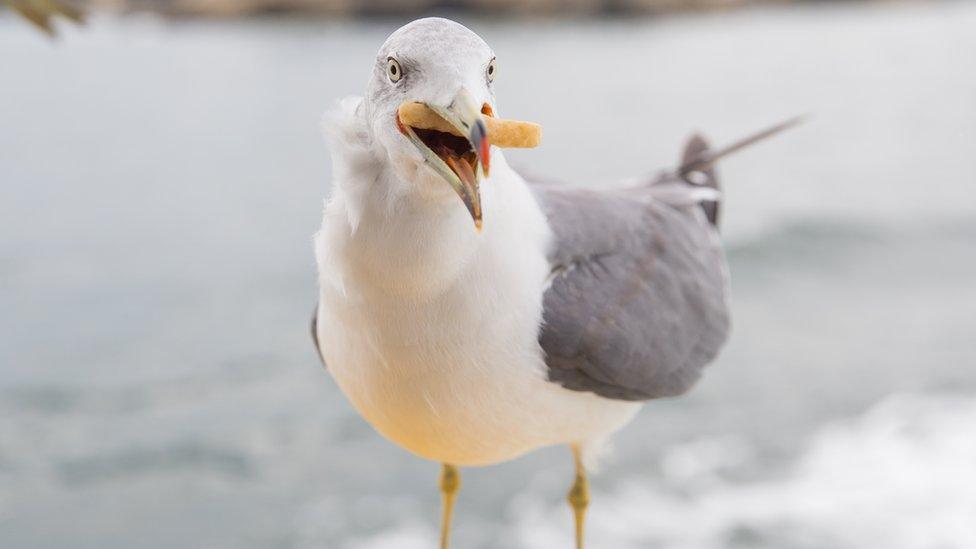Bath: Call for action over gulls after 'vicious' M&S attack
- Published
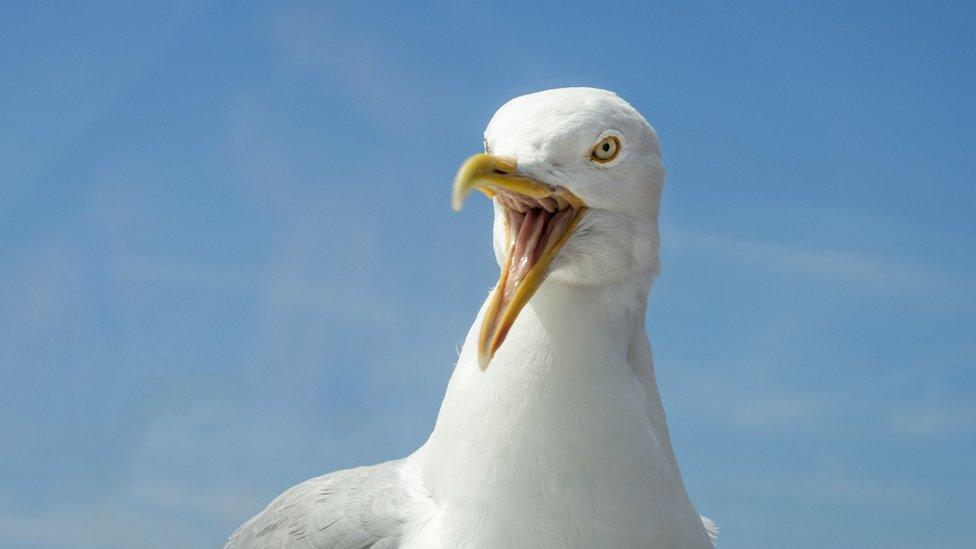
The birds are protected under the Wildlife and Countryside Act
Calls have been made for a council to petition Natural England to allow the removal of gull nests and eggs after a "vicious" attack on a woman.
Debbie Andrews, from Bath, said she was attacked by a gull and warned that incidents are on the rise in the city.
She criticised Bath and North East Somerset Council for cutting £20,000 from its budget to tackle the gulls.
The council said it is limited in the action it can take because the birds are a protected species.
At a meeting of Bath and North East Somerset Council on 20 July, Ms Andrews said: "I was attacked recently walking out of Marks & Spencer with unopened food.
"As I was putting it in my bag I felt a heavy thud on my back. I only realised what it was when a wing hit me across my head and the bird actually bent over my shoulder to peck through the plastic and managed a bite out of the food.
"Two women checked I was okay as it was such a vicious attack."
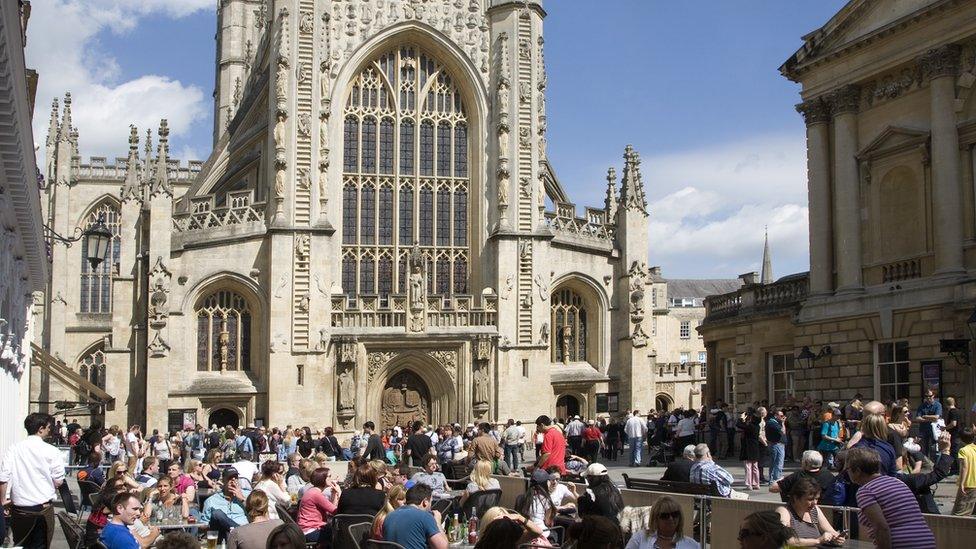
Debbie Andrews warned that attacks by gulls are on the rise across the city
She added that a gull had recently attacked her friend while walking in the Oldfield Park area of Bath and had drawn blood.
Though no action was agreed by the council, Independent councillor for Westmoreland, June Player, suggested they take the matter to Natural England.
All species of gull are protected under the Wildlife and Countryside Act, making it illegal to kills the birds or destroy a nest.
However, government licences allow the killing of urban gulls as a last resort, where a significant risk to public health or safety has been identified.
Wiltshire Council said it asks residents and visitors to provide evidence of the issues they are facing with nuisance gulls.
"We do provide advice and guidance to home owners and businesses to encourage them to proof their roofs to prevent future nesting and we are working on planning guidance to help developers 'design out' ideal perching places to help reduce the risk of nesting," a spokesperson added.

Follow BBC West on Facebook, external, Twitter, external and Instagram, external. Send your story ideas to: bristol@bbc.co.uk , external
- Published1 May 2023
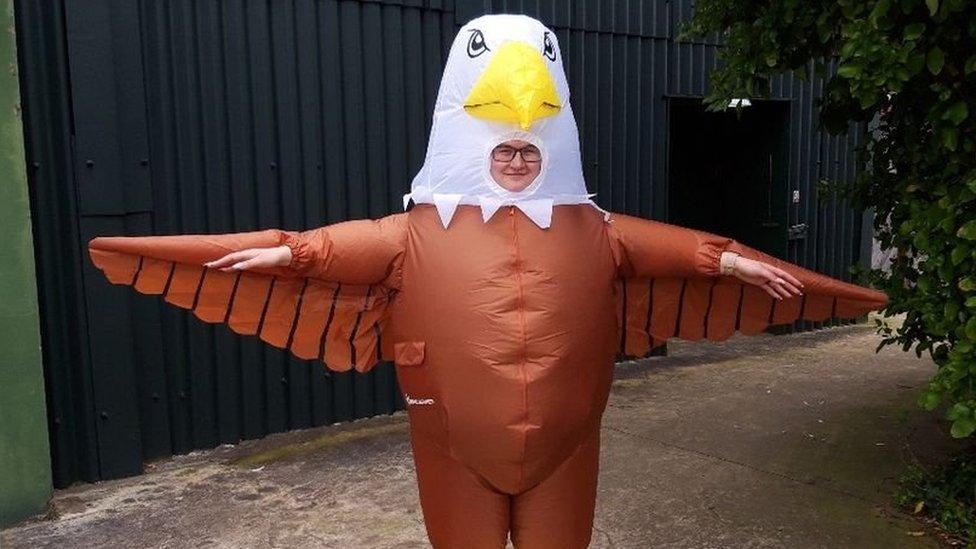
- Published14 April 2023
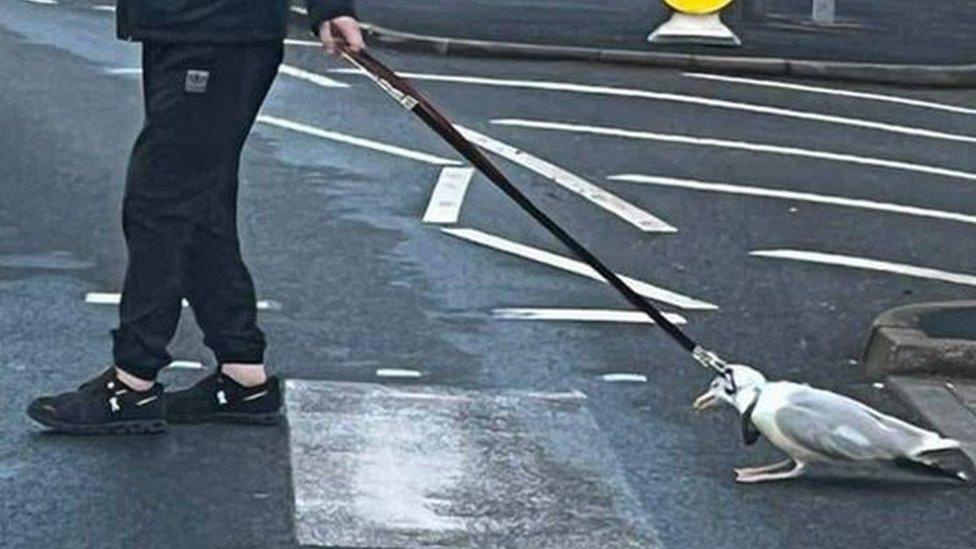
- Published24 July 2019
